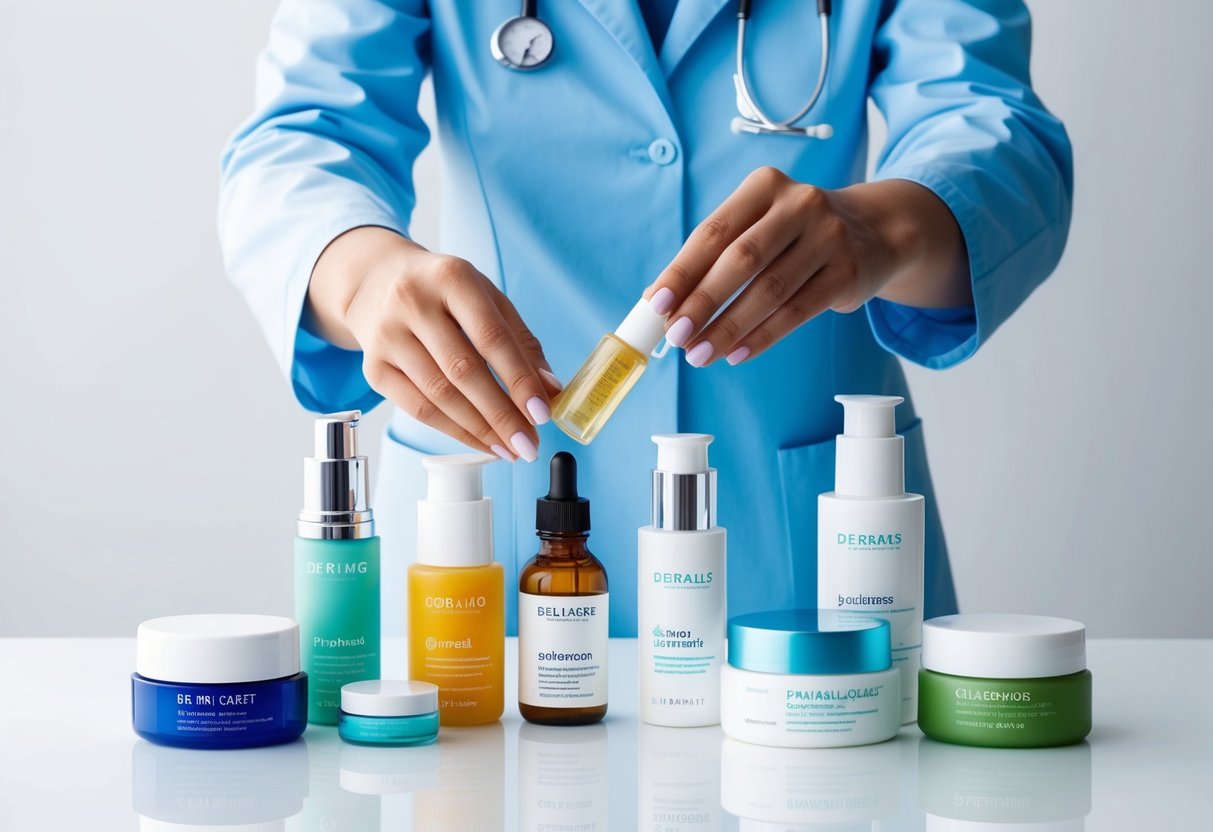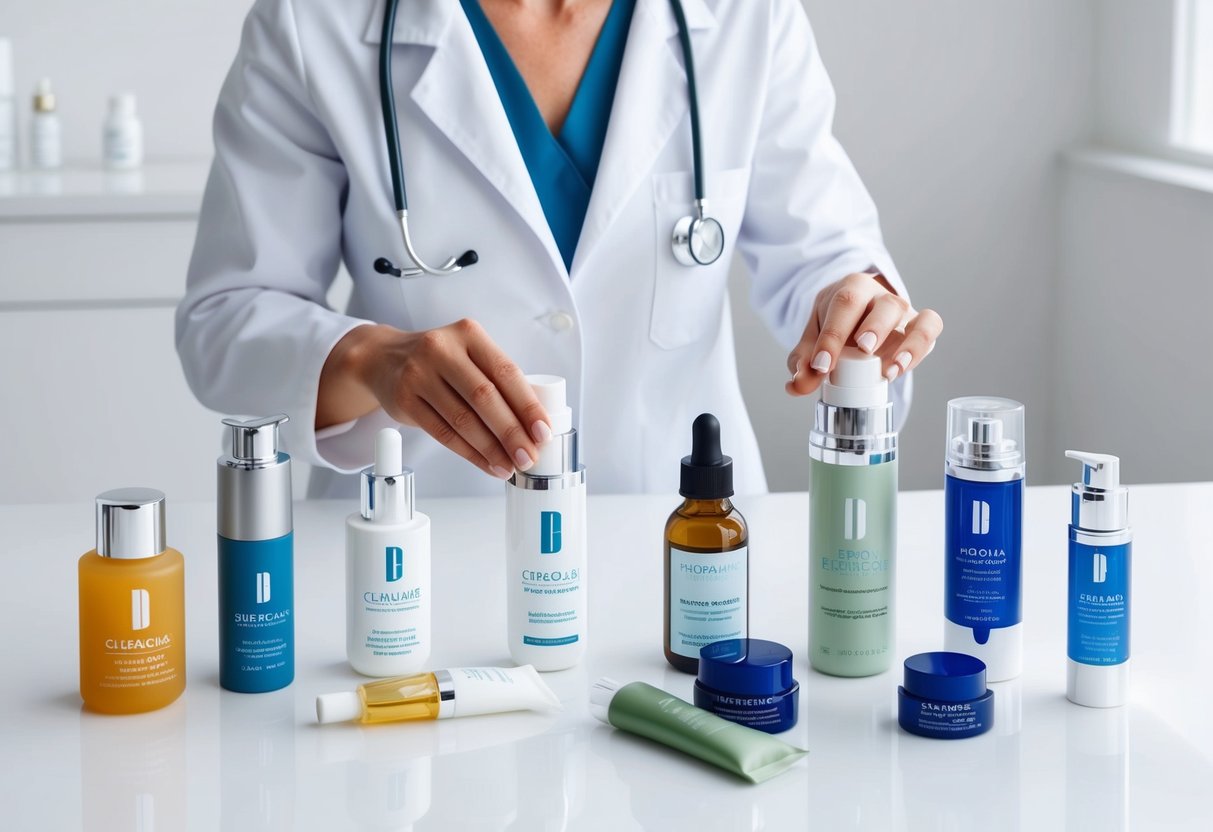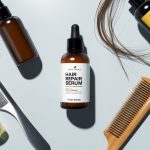How to Build a Skincare Routine for Glowing, Healthy Skin: Dermatologist Advice
Targeting Acne and Blemish-Prone Skin

Clear and radiant skin often starts with effective acne management. Selecting the right skincare products and maintaining consistent daily habits can make a significant difference.
Key Ingredients for Managing Acne
A dermatologist often recommends several active ingredients to address acne at its source. Salicylic acid is a beta hydroxy acid (BHA) that penetrates pores, helping to clear out excess oil and dead skin cells.
Benzoyl peroxide targets the bacteria responsible for breakouts and reduces inflammation. Retinoids promote cell turnover and help prevent clogged pores.
Other beneficial ingredients include niacinamide for calming redness, azelaic acid for evening skin tone, and sulfur for reducing oil. Many skin care products intended for blemish-prone individuals combine these ingredients with soothing agents to minimize irritation.
It is important to choose non-comedogenic formulas, as heavier creams and oils can clog pores. For those with sensitive skin, gentle options and lower concentrations are available to reduce the risk of excessive dryness or irritation.
Preventing and Treating Breakouts
Daily routines recommended by dermatologists usually center on three main steps: cleansing, moisturizing, and applying SPF. Using a gentle cleanser twice daily helps remove bacteria, dirt, and excess oil without stripping skin.
Incorporate a targeted treatment, such as a salicylic acid toner or benzoyl peroxide spot gel, after cleansing. Moisturizers formulated for acne-prone skin help restore hydration without adding extra oil or clogging pores.
Many experts recommend lightweight, oil-free options for individuals who experience frequent breakouts. Sunscreen is essential; look for non-comedogenic, broad-spectrum formulas to prevent sun-induced inflammation.
Addressing Signs of Aging and Anti-Aging Strategies

A targeted approach to skin care can help reduce visible signs of aging, such as wrinkles, age spots, and loss of firmness. Choosing the right preventive measures and incorporating proven ingredients strengthens the foundation for healthier, more radiant skin.
Proactive Steps Against Signs of Aging
Sun protection is the most critical factor in preventing premature aging. Dermatologists consistently recommend broad-spectrum SPF 30 or higher every day—even indoors or on cloudy days—as UV rays accelerate fine lines and hyperpigmentation.
In addition to sunscreen, minimizing direct sun exposure by wearing hats or seeking shade is highly advised. Stopping smoking, if applicable, also preserves collagen and elasticity, making a significant difference over time, as shown by clinical studies and dermatology guidance.
Gentle cleansing routines, avoiding harsh scrubs, and choosing lukewarm water help maintain the skin barrier, which becomes more sensitive with age. Adequate hydration both through creams and by drinking water supports plumper skin texture and reduces the look of dryness-associated wrinkles.
Integrating Anti-Aging Ingredients
Selecting evidence-based skin care products makes a visible impact on aging skin. The most recommended ingredients include retinoids (such as retinol or tretinoin), which improve cell turnover and target both wrinkles and uneven tone.
Antioxidants like vitamin C and vitamin E help protect skin from environmental stressors and free radical damage. Peptides, hyaluronic acid, and niacinamide enhance skin firmness, hydration, and brightness, making them common in many anti-aging skincare routines.
Combining these ingredients with moisturizers and consistent use of sunscreen amplifies results. Dermatologists often suggest starting with lower concentrations when adding actives to reduce irritation and build tolerance over time.
Dermatologist Recommendations for Lasting Skin Health

Dermatologists play a critical role in identifying skin concerns, offering guidance for home care, and recommending treatments tailored to different skin types. Establishing a proactive relationship with a skin expert can prevent and manage issues like acne, eczema, hyperpigmentation, and early signs of aging.
When to Consult a Dermatologist
Anyone noticing new, worsening, or persistent skin issues such as abnormal moles, rapid changes in pigmentation, or recurrent acne should book an appointment. Dermatologists are also essential for diagnosing unexplained rashes, eczema, severe dryness, or skin infections.
Annual mole checks help catch early signs of skin cancer. A board-certified dermatologist can also address hair loss, sudden changes in nail appearance, or allergic reactions.
Seeking their expertise is especially important if over-the-counter products are not effective or if side effects occur. People with chronic skin conditions like psoriasis or rosacea benefit from professional care and long-term skincare planning.
If someone is unsure about product ingredients, patch testing with a dermatologist can reduce the risk of irritation or allergic reactions. Immediate medical attention should be sought if a skin problem is accompanied by fever, blistering, or severe pain.
Creating a Personalized Skincare Plan
A dermatologist can tailor a skin-care routine by considering specific concerns, skin type, age, and lifestyle factors. The process often begins with a comprehensive assessment that looks at daily habits, environmental exposure, and family history of skin conditions.
Dermatologists usually recommend starting with a simple, gentle cleanser and moisturizer. Adding a broad-spectrum sunscreen with SPF 30 or higher is crucial for daily protection, as highlighted in these dermatologist-backed tips.
Routine adjustments based on seasonal changes, increased sun exposure, or hormonal shifts may be necessary. A step-by-step guide provided by a professional might include targeted treatments such as prescription topicals, retinoids, or recommendations for non-comedogenic makeup.
Patients are encouraged to keep a skincare journal to identify triggers, monitor progress, and report concerns at follow-up visits. Personalized recommendations help minimize unnecessary products and reduce the risk of irritation, leading to more consistent, healthier skin results over time.



